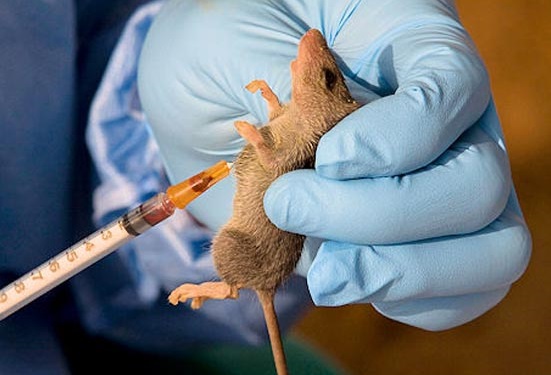
Lagos, February 15, 2020. Nigeria recently declared a Lassa Fever outbreak in the country. This followed the increase in the number of Lassa Fever cases reported in states since the beginning of the year, the Nigeria Centre for Disease Control said.
This is coming on the heels of the Lassa Fever International Conference held in Abuja to mark 50th year anniversary of the discovery of the disease in the country.
Each year, Lassa Fever kills many and leaves most of its survivors with disability, often due to the side effects of the drugs they received.
The viral disease is contracted from ingestion of food contaminated by the urine or the feaces of the multimammate rat and often transmitted via human to human contact.
NCDC in a press statement released on Tuesday said there has been an increase in the number of Lassa Fever cases reported from many states across the country since the beginning of the year.

Recent epidemiological data showed that this trend usually occurs during the dry season, between January and April.
“As at January 13, a total of 60 confirmed cases have been reported in eight states,” NCDC said.
Emergency Response
Declaring an outbreak means the NCDC has activated an Emergency Operations Centre (EOC) to coordinate a response.
The national EOC includes representatives from the World Health Organization (WHO), Federal Ministry of Agriculture and Rural Development, Federal Ministry of Environment, US Centers for Disease Control, as well as other partners.
The centre said in preparation for this year’s emergency phase, the agency has been providing support to states including the provision of emergency supplies and deployment of Rapid Response Teams (RRT).
“The RRTs will work with states in response coordination, contact tracing, case management, risk communication and strengthening infection prevention and control practices,” it stated.
This, they said, has been going on since 2018 when Nigeria experienced the largest reported case of the outbreak since the history of the disease in the country.
In 2018, a total of 3,498 suspected cases were reported from 23 states.
Of these, 633 were confirmed positive, 20 probable and 2853 negative (not a case).
Also in 2018, 171 deaths among the confirmed cases and 20 probable cases were reported making the case fatality rate in confirmed cases as high as 27 per cent.
Though the disease is more prevalent in Edo, Ondo and Ebonyi states, 20 other states recorded at least one confirmed case across 93 LGAs.
.jpg)
Distributionof confirmed cases of Lassa fever in Nieria as at 6th January, 2019. Credit: NCDC.
They are Edo, Ondo, Bauchi, Nasarawa, Ebonyi, Anambra, Benue, Kogi, Imo, Plateau, Lagos, Taraba, Delta, Osun, Rivers, FCT, Gombe, Ekiti, Kaduna, Abia, Adamawa, Enugu and Kano.
“Since the Lassa fever outbreak in 2018, NCDC has worked with states to ensure better preparedness and improved response. In the last one year, guidelines have been revised, new data management tools have been developed and the laboratory network has been strengthened. Additionally, risk communications has been strengthened through radio, posters, flyers and social media,” it said.
“A national research plan has been developed, to enable its full integration into the outbreak response to gain a better understanding of the disease”, NCDC said.
Related
Lassa fever death toll reaches 70
NCDC declares end of emergency phase of Lassa fever outbreak
Published: February 15, 2020
Updated:May 10, 2020
© 2020. Datelinehealth Africa Inc. All rights reserved
.
DATELINEHEALTH AFRICA INC., is a digital publisher for informational and educational purposes and does not offer personal medical care and advice. If you have a medical problem needing routine or emergency attention, call your doctor or local emergency services immediately, or visit the nearest emergency room or the nearest hospital. You should consult your professional healthcare provider before starting any nutrition, diet, exercise, fitness, medical or wellness program mentioned or referenced in the DatelinehealthAfrica website. Click here for more disclaimer notice.